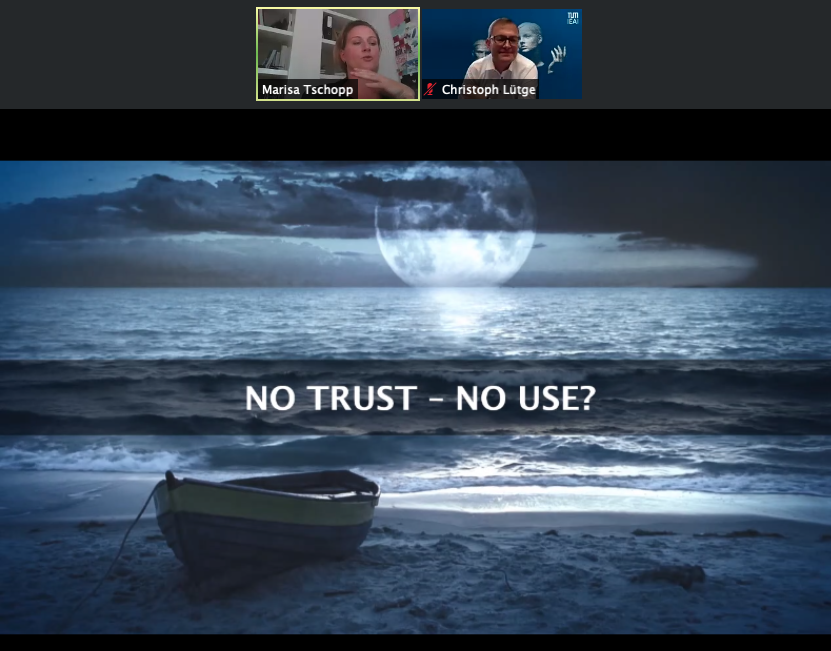It’s high time that we ask the right questions
Marisa Tschopp, researcher at scip AG and ambassador for the Women in AI Initiative in Switzerland was the guest speaker at the virtual TUM IEAI Speaker Series session that took place on Thursday, October 22 2020. The topic of the session was ”Three wrong questions about trust and artificial intelligence”.
During her presentation, Ms. Tschopp emphasized ΑΙ’s tremendous opportunities, as well as the huge ethical challenges that may arise. Ms. Tschopp is researching AI and technology from a psychological perspective. In her view, one of the most critical questions nowadays centers around the controversial and very critical relationship between the topic of trust and AI.
Ms Tschopp analyzed how trust can influence the way technology is used and help people navigate in times of uncertainty. She talked about the meaning of trust in the AI context, explained why trust is a critical concept and pointed out vulnerability as the most essential element of trust.
The use of ubiquitous smart technologies raises serious questions about the relationship between humans, machines and society. According to Ms. Tschopp, most of the discussions related to AI and the ethical challenges are currently framed in the wrong questions. Thus, she underlined the urgent need to change the focus and start asking the right questions.
Instead of Do you trust AI? we could ask Do you trust this AI-based product to achieve objective X?
Instead of How can we increase trust in AI? we could ask How can we (as AI developers and software companies) be trustworthy? And finally, instead of Should we trust AI? we could ask How can we better understand AI?
A transdisciplinary approach can help to determine which are the most relevant problems and relevant research questions. Psychologists have a crucial role to play in this as well, since they are very involved in the field of technology research.
The IEAI also had the pleasure of speaking with Ms. Marisa Tschopp prior to her Speaker Series session. Read her answers in our Q&A series “Reflections on AI” and watch the edited video version.

